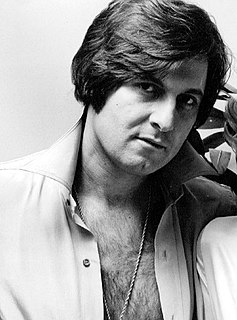A Quote by Jesse Eisenberg
I don't go to movies, I don't own a television, I don't buy magazines and I try not to receive mail, so I'm not really aware of popular culture.
Related Quotes
The truth is, everything we know about America, everything Americans come to know about being American, isn't from the news. I live there. We don't go home at the end of the day and think, "Well, I really know who I am now because the Wall Street Journal says that the Stock Exchange closed at this many points." What we know about how to be who we are comes from stories. It comes from the novels, the movies, the fashion magazines. It comes from popular culture.
Richard Donner made great movies. Seminal movies. The Academy, though, and we have to be careful here, should recognize popular films. Popular films are what make it all work. There was a time when popular movies were commercial movies, and they were good movies, and they had to be good movies. There was no segregation between good independent films and popular movies.
Popular culture as a whole is popular, but in today's fragmented market it's a jostle of competing unpopular popular cultures. As the critic Stanley Crouch likes to say, if you make a movie and 10 million people go see it, you'll gross $100 million - and 96 per cent of the population won't have to be involved. That alone should caution anyone about reading too much into individual examples of popular culture.
When you're on the bus or subway or in your car, why busy your mind with all the garbage of advertisements? Why fill your mind with television and radio? Somehow you have to decide what your mind will receive. I don't mean you shouldn't ever go to movies or watch television, but control what enters your mind and heart. It's not just a question of pushing bad things out but also a question of holding on to something really good.
I never looked at magazines before I started modeling. I was 13 or 14 and none of my friends were into magazines. We were into the fashion of the day, though. Designer jeans were really popular - Sasson, Gloria Vanderbilt, Calvin Klein, Jordache. Once I started modeling, I began to learn about these things, and magazines helped me to understand who was who.
Don't try to buy art as an investment. Buy something you really love because you're going to have to look at it again tomorrow. And an investment can go up or down. Buy something you really adore, you really like, and you want to live with. And if you decide some years later you don't want to live with it anymore, sell it. Get out.
I think we really need a movement to drive how popular culture understands the issues that feminists care about. When I think about the LGBT movement for example, they have had a really intentional strategy to try to change images and representation of LGBT people in the media and the culture. It really moved the dial politically. That's what is needed in the women's movement - a strategy that can drive awareness and culture change.



































